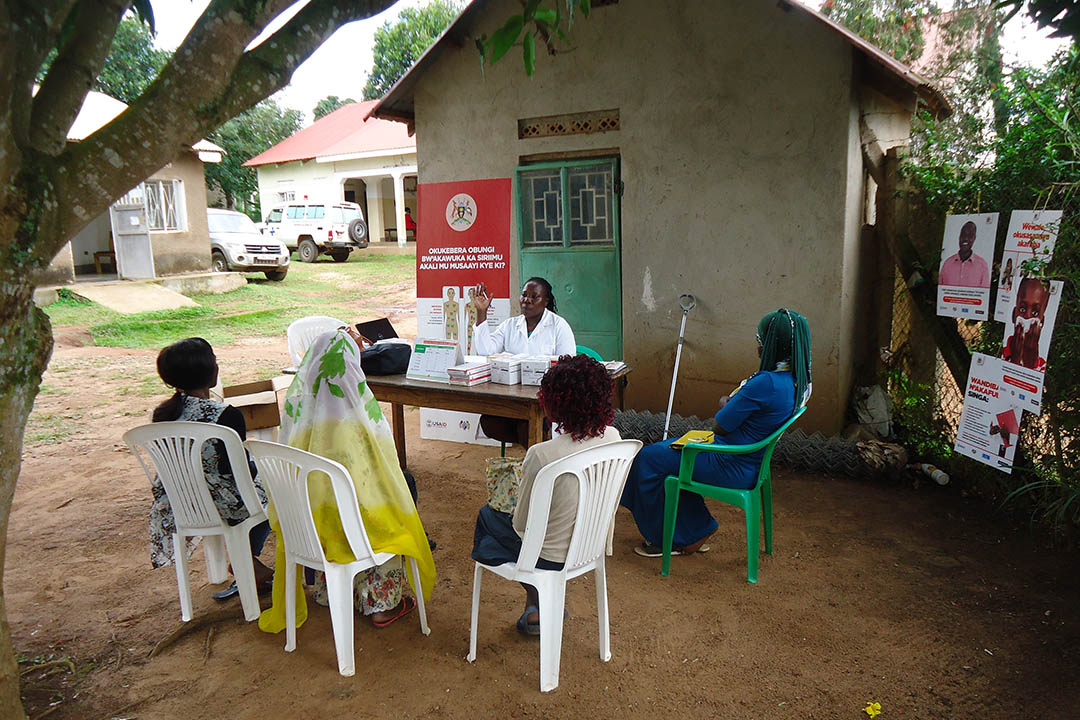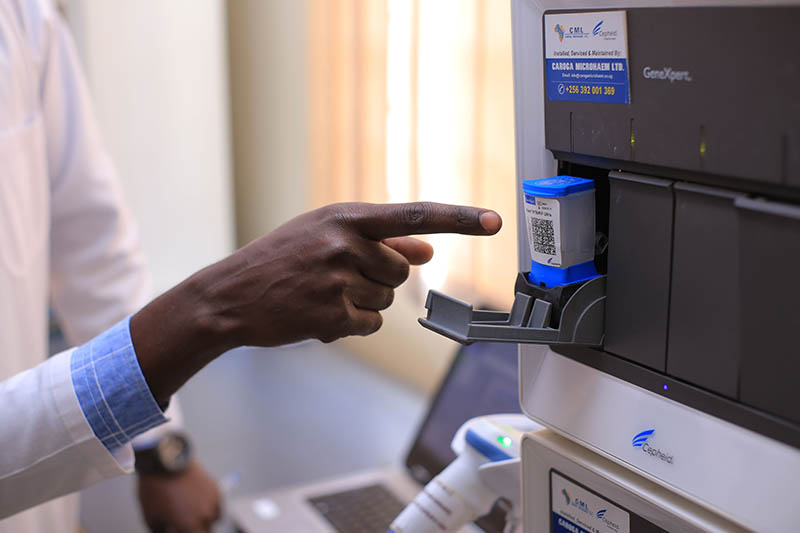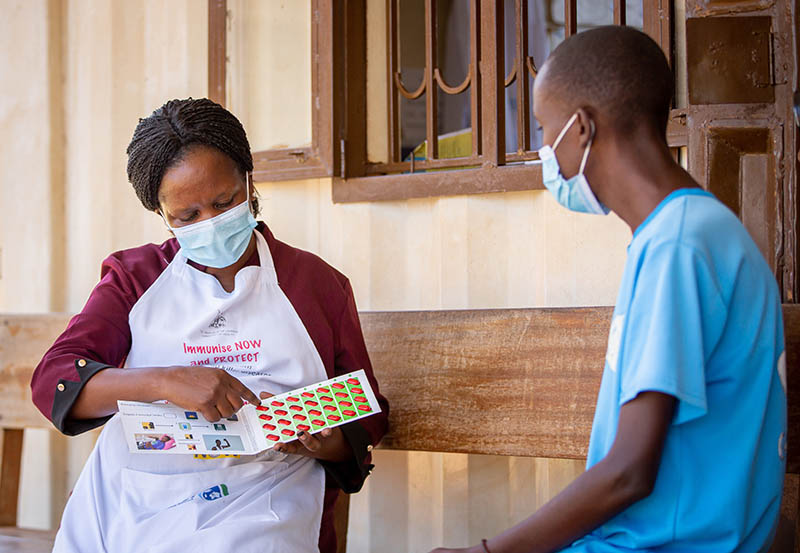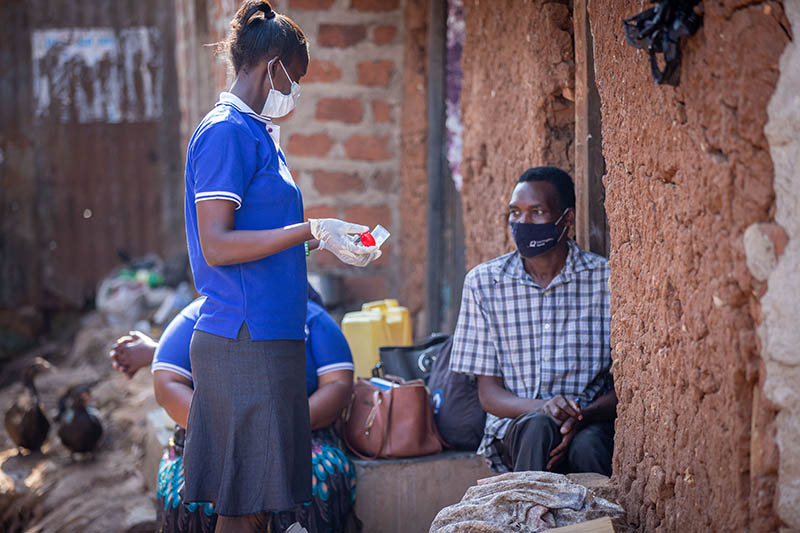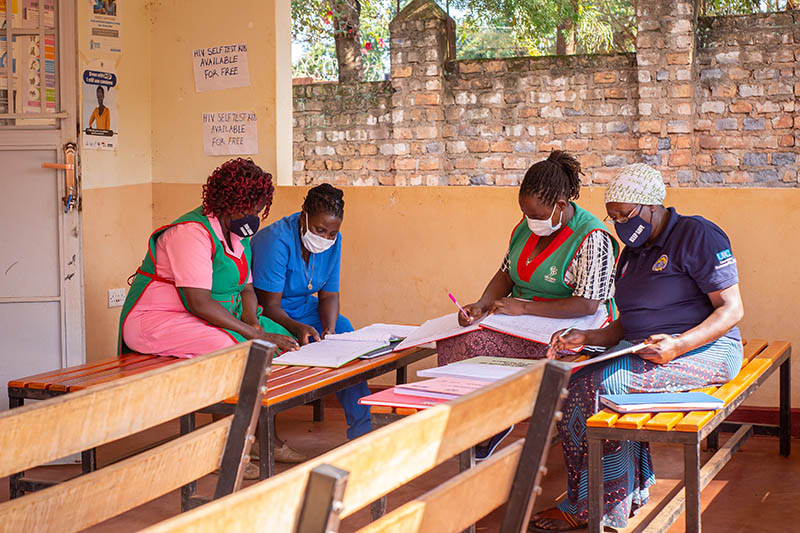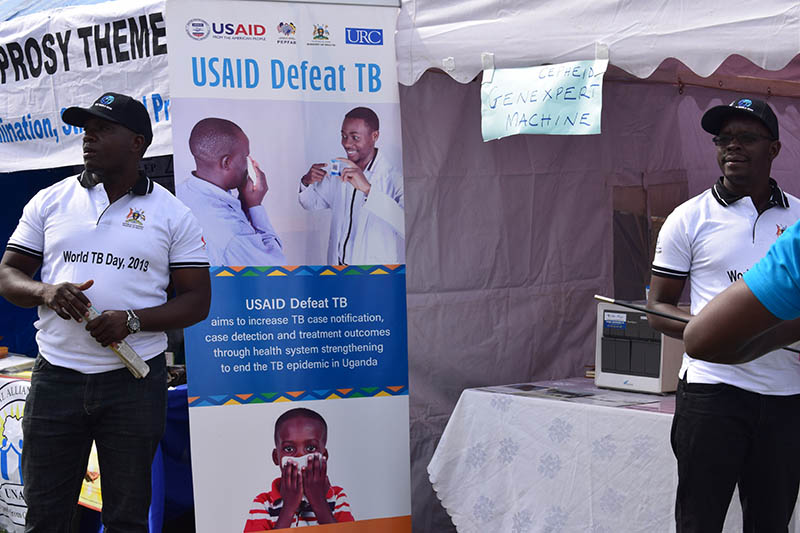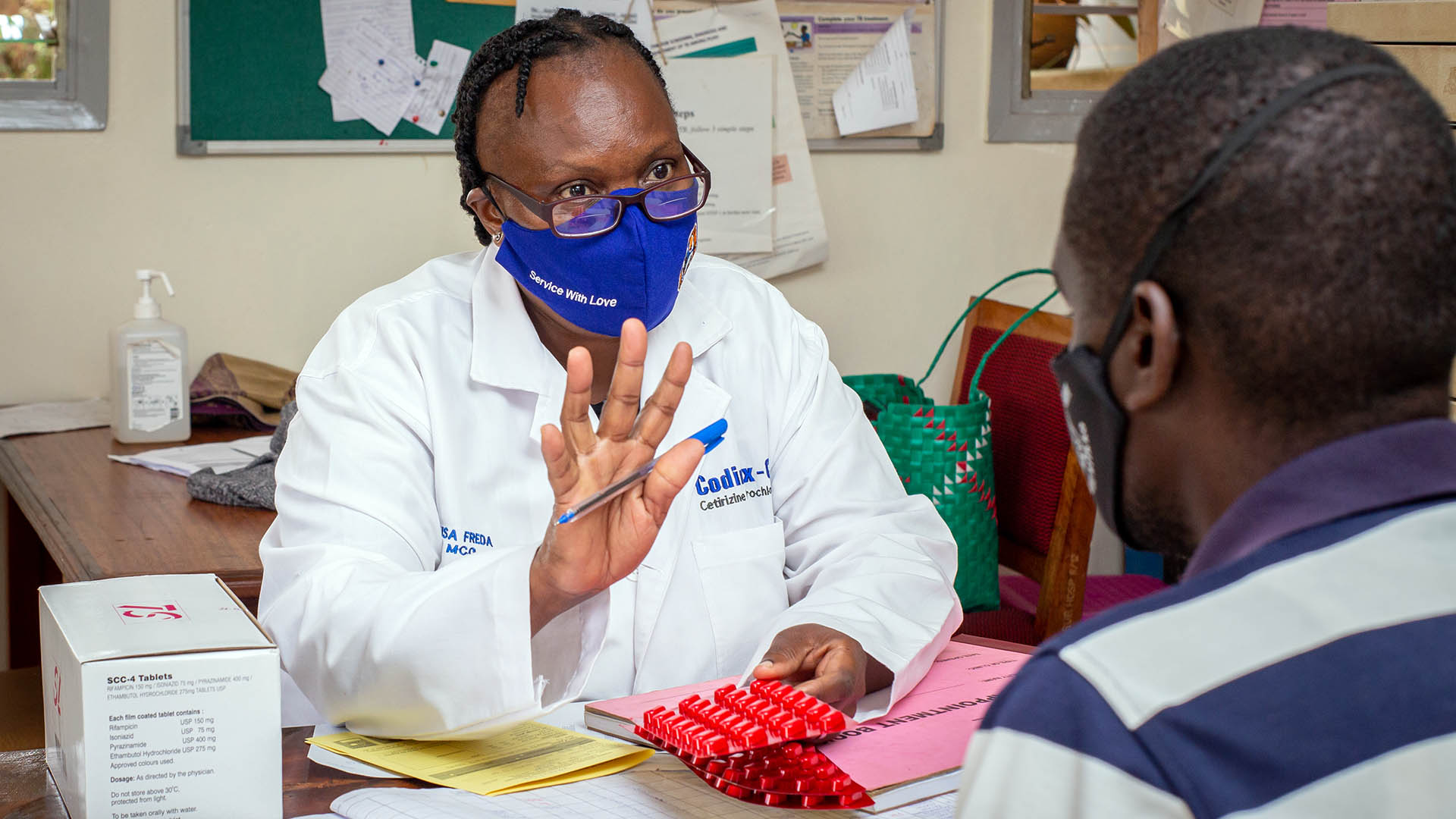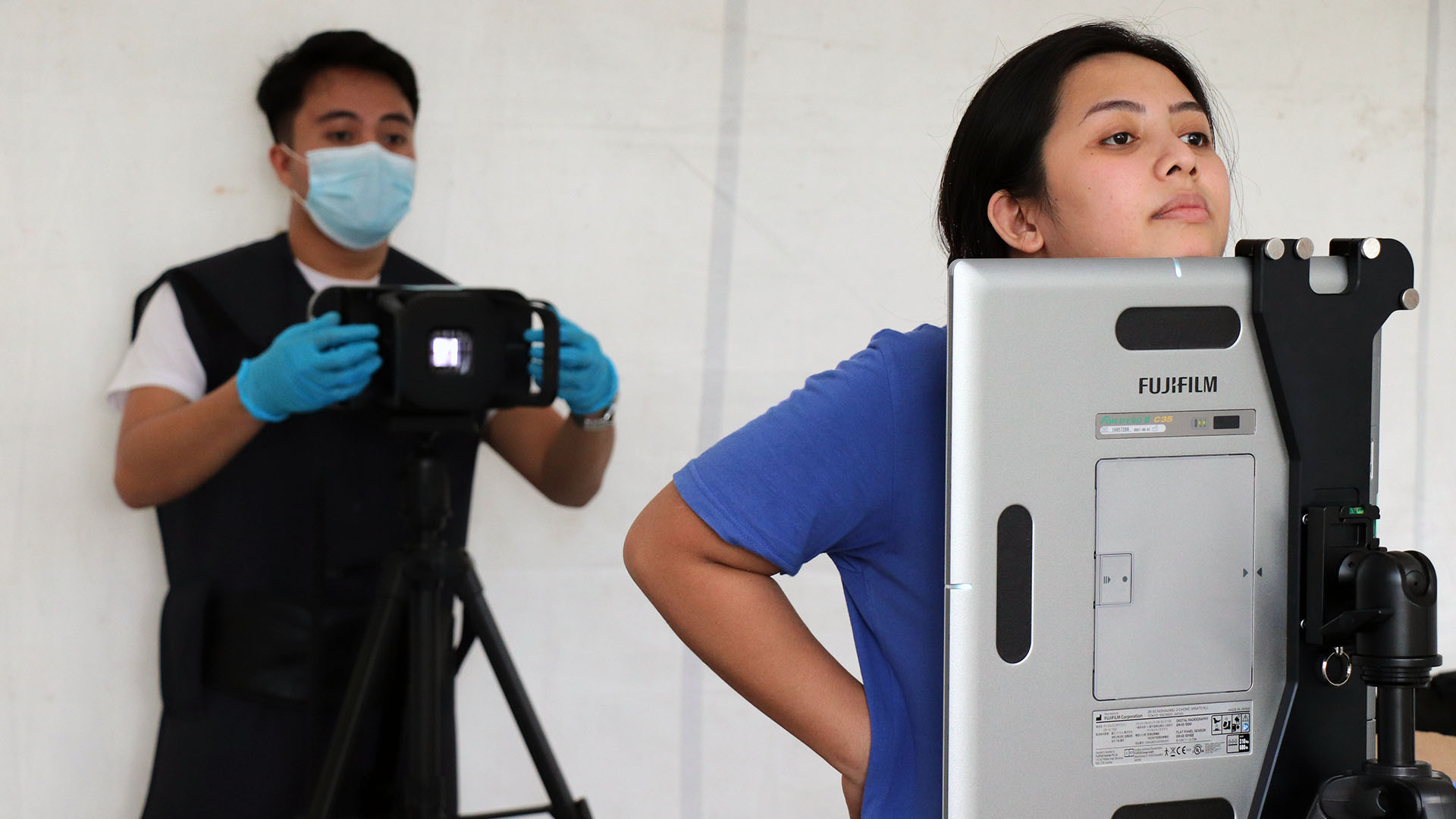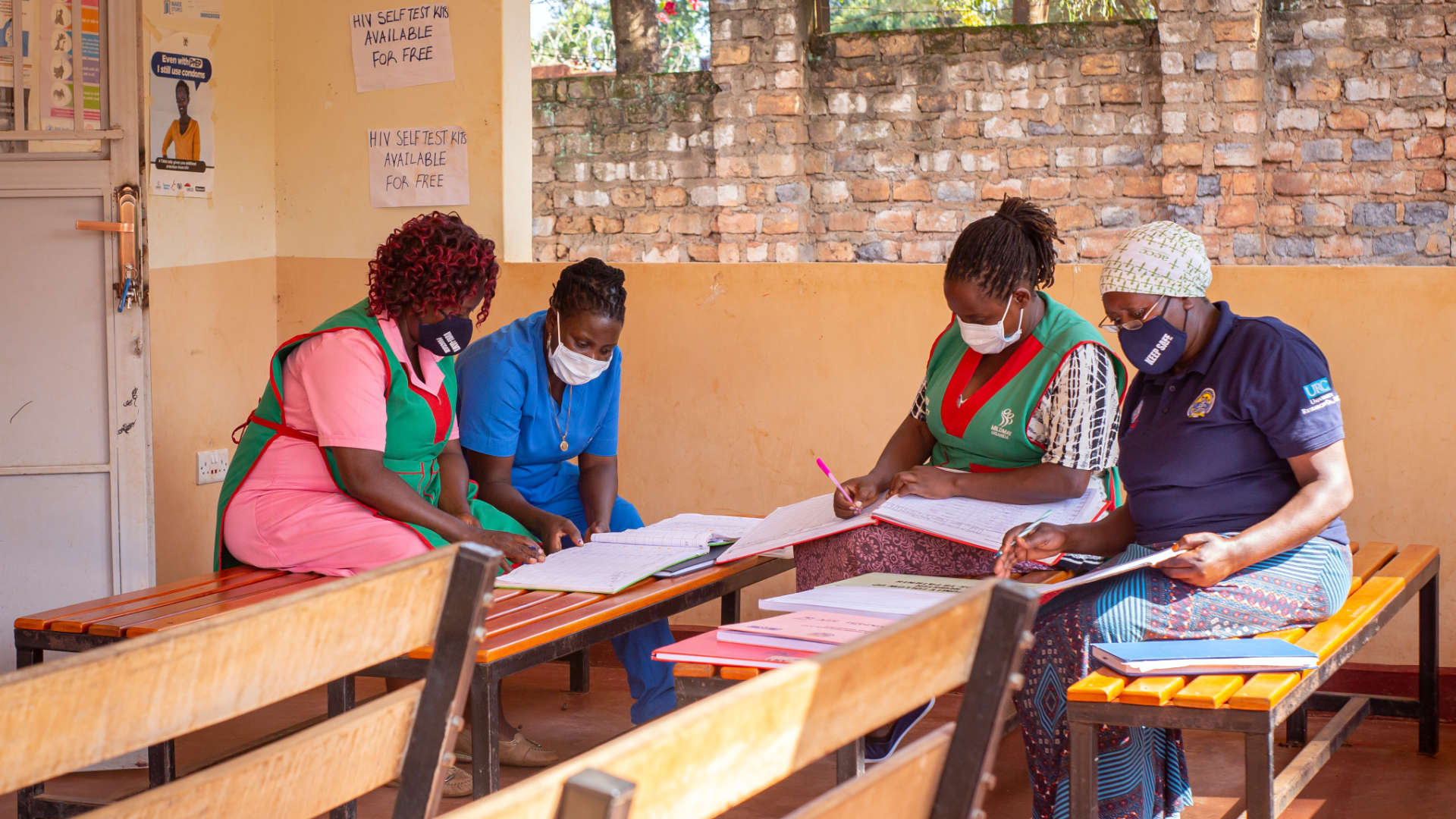In 2017, Uganda faced several key obstacles to reducing the reach and impact of tuberculosis (TB). These included inadequately trained health care workers and administrative staff, a lack of coordination among TB program implementers and managers, drug stockouts, and more.
And while Uganda has not yet ended its TB epidemic, it has moved closer to doing so with the support of the USAID Defeat TB Activity, implemented by URC between 2017 and 2022.
“The overall goal of the USAID Defeat TB Activity was to increase TB case detection, TB case notification, and treatment outcomes while strengthening the health system to end the TB epidemic in Uganda,” said Dr. Abel Nkolo, USAID Defeat TB Chief of Party.
Defeat TB met these goals. Key achievements include:
- The TB case detection rate in the activity’s three focus districts of Kampala, Wakiso, and Mukono increased from 61% to 102.6% of the cases estimated by the Uganda National Tuberculosis and Leprosy Programme;
- The percentage of TB drug-dispensing sites in the focus districts maintaining continuous stocks of TB commodities increased from 6% to 90%;
- The national TB case detection rate increased from 63% in 2017 to 88% in 2021; and
- The national drug-resistant (DR) TB treatment success rate increased from 64% in 2016 to 80% in 2021.
Praise from the Highest Levels
On Aug. 17, Defeat TB hosted a half-day activity close-out conference focused on sharing its successful approaches and achievements. More than 250 people attended via livestream or in-person, including representatives from USAID, the U.S. Centers for Disease Control and Prevention, U.S. Department of Defense, Uganda Ministry of Health, World Health Organization (WHO), Global Fund, private sector, civil society, and communities.
At the event, USAID Uganda Mission Director Richard Nelson praised the activity.
“Defeat TB proves that the health system in Uganda can be robustly and sustainably strengthened through collaboration,” Nelson said. “The impressive results achieved – despite COVID-19 – attest to the potential for further gains in health and the well-being of all Ugandans through a more robust health system.”
Also speaking in-person at the event was Uganda Minister of Health Dr. Ruth Jane Aceng.
“Defeat TB … put a dent in TB,” Dr. Aceng said. “The activity has been successfully implemented and we attained the highest treatment coverage, treatment success, and prevention targets during the five-year period.”
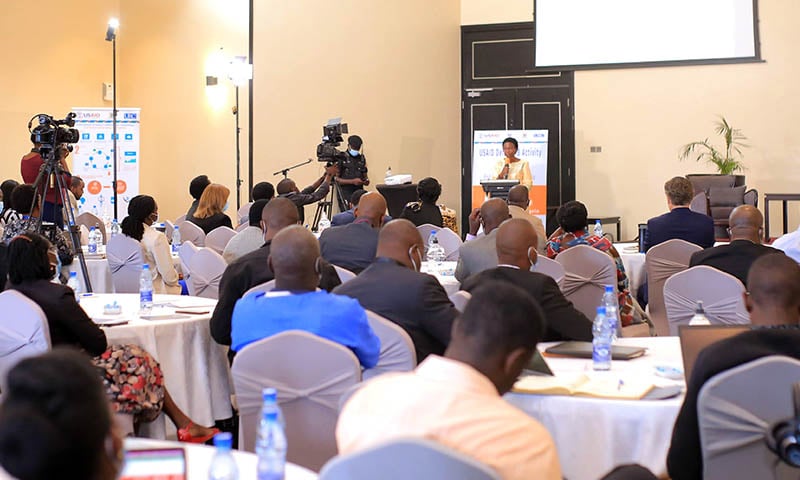
Improved Leadership, Technical Capacity, and Coordination
The activity worked in the three focus districts of Kampala, Wakiso, and Mukono and directly supported seven drug-resistant TB (DR-TB) treatment initiation facilities. Defeat TB also collaborated with other USAID-funded regional mechanisms to provide technical assistance for DR-TB management at nine general or regional hospitals.
The activity used complementary approaches, including health system strengthening, leveraging multi-stakeholder partnerships, and strengthening capacity for improving service delivery through continuous quality improvement (QI) methods.
Defeat TB interventions included:
- Supporting the development of the patient-centered, five-year TB national strategic plan and annual operational plans, plus the development and adaptation of WHO guidelines for TB interventions such as contact investigation and TB preventive therapy;
- Helping to ensure efficient use of TB funding by developing a TB funding tracker, which evolved into a dashboard used in QI efforts with partners;
- Developing and implementing continuous QI approaches for actively finding missing TB patients, improving treatment success rates, accelerating initiation of preventive therapy, improving patient retention, and more;
- Facilitating the development of the National TB research agenda and launching monthly operations research forum meetings for implementing partners and government leaders to inform policy and promote research relevant to TB programming in Uganda; and
- Supporting the transition from paper records to a DHIS2 system and revision of health management information tools and standard operating procedures and ensuring data quality assessment and utilization.
Supporting Localization in Uganda
One of USAID’s sustainability strategies is localization, or ensuring local organizations can independently create and implement local solutions to health challenges.
Defeat TB contributed to this by supporting USAID on the selection of a local organization to lead its TB work. The Infectious Diseases Institute (IDI) was chosen and is now leading Defeat TB’s follow-on activity, the Local Partnership for Health Services for TB Activity.
“We worked through joint planning to make sure that [IDI has] a sound plan to end the TB epidemic in Uganda,” Nkolo said. During Defeat TB’s last months, activity staff worked alongside IDI to ensure a smooth transition.
At the end-of-activity conference, Nelson reminded the audience that these efforts ultimately are focused on improving the well-being of Ugandans.
“All of Defeat TB’s accomplishments translate into thousands of lives saved,” Nelson said. “And that can’t be lost on us while we’re looking at these statistics … we have to think about the families, the individuals whose lives have been saved.”
“URC has been a strong partner in this effort and we appreciate their leadership,” Nelson said.
